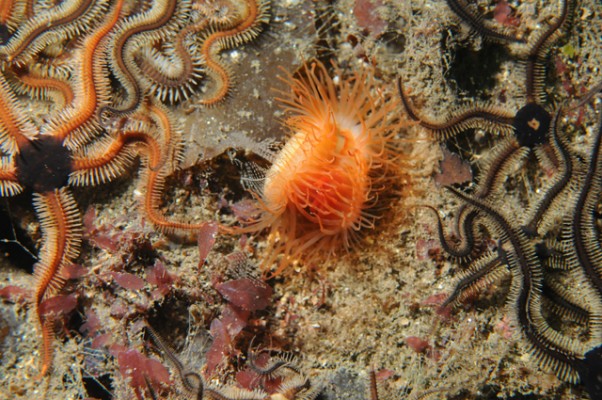After evidence emerged of a scallop dredger towing in a protected area, the Scottish Government has put in place an urgent Marine Conservation Order (MCO) to safeguard seabed habitats off Wester Ross in northwest Scotland.
All forms of dredging, including for scallops, have been prohibited in the Wester Ross Marine Protected Area (MPA) which is home to delicate maerl beds, a fragile underwater habitat.
The order, which was introduced on 17 August, comes after concerned members of the local community photographed and reported a breach of voluntary arrangements for fishing in the area, which have been in place since the site was designated a Scottish MPA last summer (along with 29 other sites).
MCS Scotland Programme Manager Calum Duncan said: ‘Whilst it is regrettable that the voluntary closed area was breached, we welcome the Scottish Government’s rapid action with the emergency closure.
‘It highlights just how urgent protection of our seabed has become. Safeguarding fragile features of our seabed such as maerl, which act as nursery and refuge areas for scallops and other fish and shellfish species, is in everybody’s long-term interest since they are the foundation for sustainable local livelihoods.
‘We support this becoming a permanent closure as part of the proposed management measures for the site.’
Related articles
- Protection measures for Scottish seas outlined
- Public consultation on new MCZs
- RYA raises concerns over quality of evidence for MCZs
- First MCZs in England to be designated this Autumn
- 120 MPs unite in call for full network of Marine Protected Areas
Scottish Environment Secretary Richard Lochhead said: ‘It’s very disappointing that a scallop dredger has breached the voluntary fishery management measures in this MPA which is considered vital to the recovery of maerl beds.
‘The seabed shows signs of damage consistent with a pass of scallop dredging gear. Maerl beds can take centuries to grow back and further risk of damage to these precious habitats cannot be allowed.
‘The evidence in this case has left me with no choice but to close the Wester Ross MPA to dredging now, instead of waiting until November as planned.
‘This emergency conservation order will not affect other fishing activity in the Wester Ross MPA, including hand diving for scallops.’




